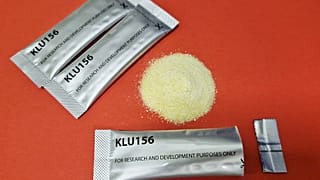Canada
With filtered faces and flawless feeds dominating social media, one Canadian startup is attempting to challenge the illusion.
Trusting Pixels is using artificial intelligence to detect digitally altered content, starting with make-up filters often used by beauty influencers.
Alexander Jacquet, CEO of Trusting Pixels, says: “So this helps brands and agencies spot influencers who typically retouch a lot. What we do is we analyse influencer accounts to see how much of their content is retouched how we created this is we trained our own machine learning models that can detect if something’s been retouched.”
The software compares visual cues to determine what’s real and what’s been digitally enhanced, like added make-up, smoothed skin, or reshaped features. It gives marketers and watchdogs a clearer view of how much manipulation is behind a post. Labels in these promotional videos shared by the company highlight what the app detects as genuine, and what it identifies as fake.
More transparency
For industries like beauty, where influencer credibility directly impacts consumer trust, this technology offers a new layer of transparency.
Brands pick influencers based on a variety of metrics, such as follower count, and engagement rates, but they have no metric in place to see how much of their content is retouched. The company’s tool generates reports that assign a ‘retouch score’ to influencer accounts, helping clients navigate who’s sharing authentic content and who’s curating a digital illusion.
“Here you have different influencers. Ironically, these influencers are in the beauty sector. We analyse all their accounts and identify how much of their content is retouched. And as you can see, every single influencer retouches a different amount. So will a brand want to pick an influencer that retouches more or less? We leave it up to them. But now they have access to this data that helps them identify which influencers essentially produce more authentic content," explains Jacquet.
Detection tools still have some way to go
While the technology may seem promising, experts say detecting AI-generated or altered content more broadly remains a complex challenge, even when using AI to do the job.
Richard Windsor, Founder of Radio Free Mobile says: "When it comes to detection of misinformation or AI generated content, (there is) still quite a long way to go I'm afraid. If you look at the quality of detection - and I've run tests on this myself - it's pretty unreliable."
"I've written stuff that's me and it says it's AI generated. I've AI generated stuff and it says no that's you. So there's still a long way to but you know, again, it comes down to sophisticated pattern recognition. And so going forward, what you are going to have is a constant cat and mouse, which is generation gets better and evades the detection. So the detection has to get better," he concludes.
As AI becomes more advanced, so does the need for sophisticated tools to keep pace. Startups like Trusting Pixels aim to be part of that race, working to stay ahead in an ever-shifting landscape.
Trusting Pixels is one of many companies featured at VivaTech in Paris - one of the world’s largest technology conferences. The event runs until 14 June.





![Artificial intelligence: where does Africa stand? [BusinessAfrica]](https://static.euronews.com/articles/stories/07/23/13/28/320x180_cmsv2_7f048366-1c9b-5200-9fcd-0b852e878152-7231328.jpg)






01:03
Egyptian lawmakers working to limit children's exposure to 'digital chaos' of social media
Go to video
Egypt to restrict children’s social media use
Go to video
Rwanda to test AI-powered technology in clinics
01:00
Videos of Iran protests spread as internet returns
01:00
Robots wow crowds at Consumer Electronics Show in Las Vegas
01:00
AI takes center stage at Consumer Electronics Show 2026 in Las Vegas